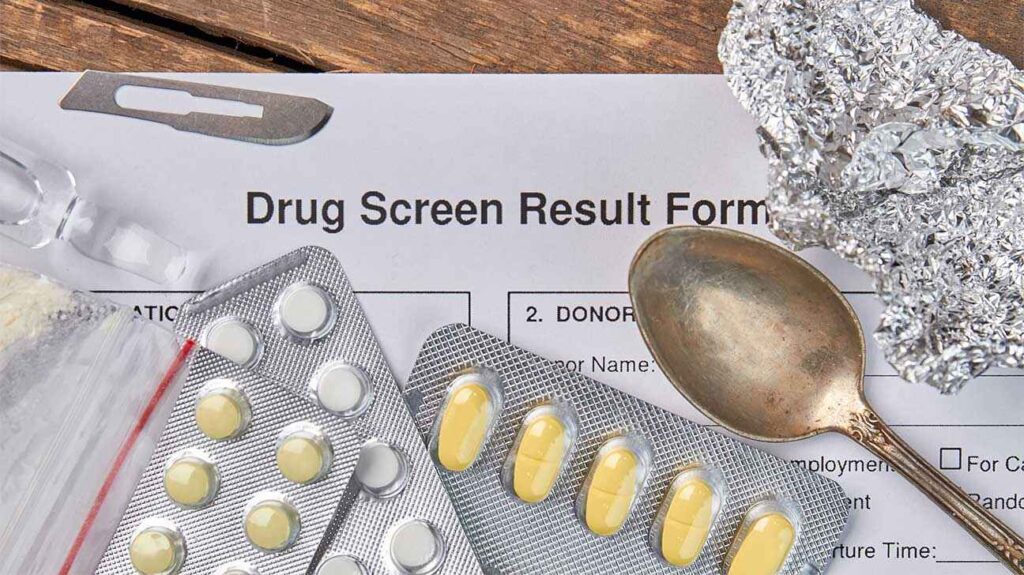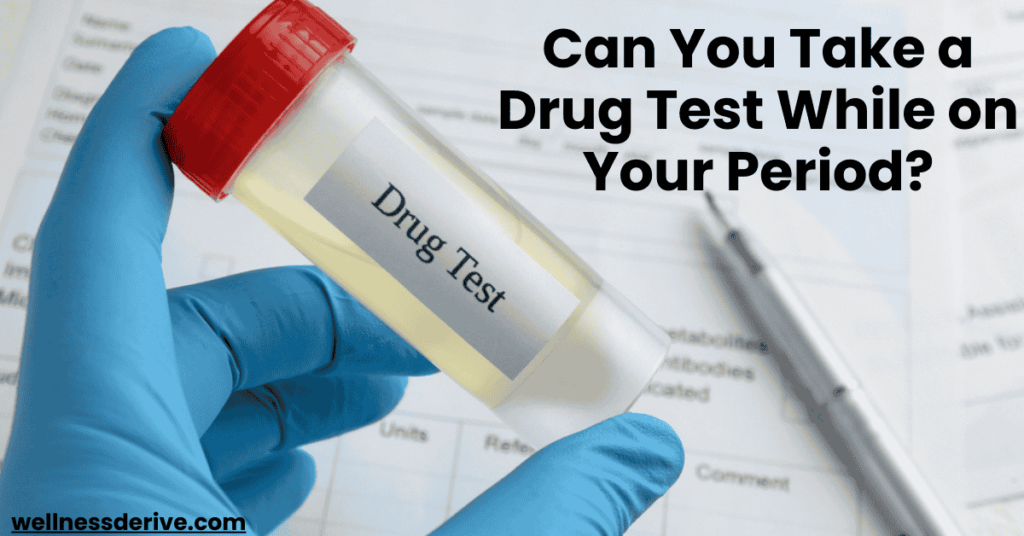If you’re scheduled for a drug test but your period starts, you may wonder, can you take a drug test while on your period? The short answer is yes, you can still take a drug test during your menstrual cycle. However, there are certain precautions to take to ensure accurate results and avoid contamination of the sample. In this article, we’ll cover everything you need to know about taking a urine drug test while on your period, the impact of menstruation on test results, and tips for a smooth testing experience.
Does Menstrual Blood Affect Urine Drug Test Results?
One common concern is whether menstrual blood can affect a urine drug test. While menstrual blood itself does not affect the detection of drugs in urine, it can contaminate the sample if not handled properly. Here’s what you need to know:
- No Impact on Drug Detection: The presence of menstrual blood in urine will not alter the test’s ability to detect substances like THC, opiates, or other drugs.
- Sample Contamination: Menstrual blood can make it difficult for lab technicians to analyze the sample accurately. Blood cells may be mistaken for signs of infection, leading to the need for a repeat test.
- Lab Technicians Are Trained: Lab professionals are aware of how to process urine samples from menstruating individuals, so you shouldn’t feel embarrassed.
Tip: If you’re on your period, inform the technician before giving your urine sample so they can provide you with appropriate guidance.
How to Take a Drug Test While on Your Period

If you need to take a urine drug test while on your period, follow these steps to ensure the sample is clean and accurate.
1. Inform the Lab Technician
Let the testing center or lab technician know you’re on your period. This way, they can provide you with proper instructions and avoid misinterpretation of the results.
2. Use a Tampon or Menstrual Cup
To prevent blood from contaminating your urine sample, it’s best to use a tampon or menstrual cup. If you don’t have one available, inform the technician so they can offer guidance.
3. Clean the Area Before Collecting the Sample
Use a disposable wipe (often provided at the testing center) to clean the area around your urethra. This prevents menstrual blood, vaginal discharge, or bacteria from contaminating the sample.
4. Catch the Midstream Urine
When collecting the sample, allow the first few seconds of urination to flush out any potential contaminants. Then, collect the “midstream” urine in the collection cup.
5. Follow the Lab’s Instructions
Each testing facility may have its own instructions, so make sure to follow them carefully. If you’re unsure, ask for clarification from the technician.
Can I Take a Drug Test on My Period Without a Tampon or Cup?
Yes, you can still take a drug test during your period even without a tampon or menstrual cup, but it’s important to take extra precautions to avoid contamination. Menstrual blood mixing with urine can potentially interfere with the test results, especially in visual or dipstick-based screenings. To ensure a clean and accurate sample:
1. Clean Thoroughly Before Collection
Use a clean, unscented sanitary wipe to gently cleanse your vaginal and urethral area. This step helps remove any menstrual blood or external contaminants from the skin’s surface.
2. Use the Midstream Technique
Start urinating into the toilet, and only collect urine midstream into the sample cup. The first few seconds of urination can carry residual blood or debris, so capturing midstream helps reduce contamination.
3. Avoid Touching the Cup’s Interior
Hold the sample container by the sides and be careful not to touch the inside of the cup or lid to prevent introducing bacteria or other contaminants.
4. Inform the Technician (If Possible)
If you’re comfortable, let the testing professional know that you’re menstruating. They may take additional steps or note it on the lab form, especially if blood contamination is visible in the sample.
5. Consider Timing (If Not Urgent)
If the drug test isn’t time-sensitive, waiting a day or two until menstrual flow is lighter—or using a menstrual cup/tampon for better hygiene—can provide a cleaner sample.
Being diligent with hygiene and using the midstream technique are key to providing a viable urine sample during menstruation, even without menstrual products.
Also Read: How To Get Rid Of Period Cramps Fast In Bed
Can You Take a Urine Drug Test on Your Period?
Yes, you can take a urine drug test on your period. While some people worry about contamination, drug tests are designed to detect specific substances, not the presence of blood. Even if blood is present in the urine sample, it will not interfere with the drug detection process.
However, it’s crucial to inform the technician to avoid any confusion. Blood in the urine may signal a urinary tract infection (UTI) or other medical issues, so it’s helpful for the lab to know that you’re menstruating.
How to Prepare for a Urine Drug Test During Menstruation
If you have an upcoming drug test and you’re on your period, here’s how to prepare for it:
- Stay Hydrated: Drink plenty of water, but avoid drinking too much right before the test, as it may dilute your urine and affect the test’s accuracy.
- Wear Comfortable Clothing: If you need to use a tampon or menstrual cup, make sure you’re wearing something comfortable.
- Follow Hygiene Protocols: Clean the area thoroughly before collecting your sample to prevent contamination.
- Inform the Lab Staff: Let the technician know you’re on your period so they can take precautions.
Does Period Blood Affect Drug Test Accuracy?
No, menstrual blood does not affect the accuracy of drug testing. Drug tests are designed to detect specific substances like THC, opiates, amphetamines, and other drugs. While menstrual blood may change the appearance of the sample, it does not impact the ability to detect drugs.
That said, if the lab suspects contamination, they may request a second sample, especially if it appears cloudy or contains visible blood.
Also Read: Why Do I Get So Hungry on My Period?
Tips for Taking a Drug Test During Your Period
Here are some quick tips for a successful drug test during menstruation:
- Use a Tampon or Menstrual Cup: This prevents blood from mixing with your urine.
- Inform the Technician: Let them know you’re on your period so they understand the reason for potential blood in the sample.
- Clean Thoroughly: Use a disposable wipe to clean your vaginal area before collecting your urine.
- Follow Instructions: Adhere to the lab’s guidelines for providing a urine sample.
FAQS About Drug Testing on Your Period
1. Can I Do a Urinalysis on My Period?
Yes, you can take a urinalysis while on your period, but it’s best to inform the technician. Urinalysis checks for things like infections, blood in the urine, and other health markers, so knowing you’re menstruating will help the lab understand the source of any red blood cells in your sample.
2. Can I Do a Drug Test While Menstruating?
Yes, menstruation does not affect the accuracy of drug tests. Just follow the proper collection procedures to ensure an uncontaminated sample.
3. Does Menstrual Blood Affect Drug Test Results?
No, menstrual blood does not affect drug test results. However, it may cause the sample to appear cloudy or discolored, which could lead to the lab requesting a new sample.
4. How to Clean Yourself Before a Urine Test on Your Period?
Before giving a urine sample, use disposable wipes to clean the area around your urethra. This prevents contamination from menstrual blood, discharge, or bacteria.
5. Will a Drug Test Detect Menstrual Blood?
Yes, if blood is present in the urine sample, the technician will see it. However, the lab is trained to recognize this and will not confuse it with a medical condition if they know you’re menstruating.
Conclusion
Can You Take a Drug Test While on Your Period? Yes, you can take a drug test while on your period, and menstrual blood does not interfere with the accuracy of the results. However, there is a slight risk of contaminating the urine sample, which could lead to complications in processing. To reduce this risk, it’s advisable to use a tampon or menstrual cup during the test. If neither is available, make sure to clean the genital area thoroughly with a sanitary wipe beforehand. Collect a midstream urine sample to further reduce the chance of blood mixing with the sample. Additionally, inform the lab technician that you’re menstruating—they are trained to handle such situations professionally. Taking these precautions helps ensure the test proceeds smoothly without requiring a retest.
Disclaimer: The content on Wellness Derive is for informational purposes only and not a substitute for professional medical advice, diagnosis, or treatment. Always consult a healthcare provider for medical concerns.



